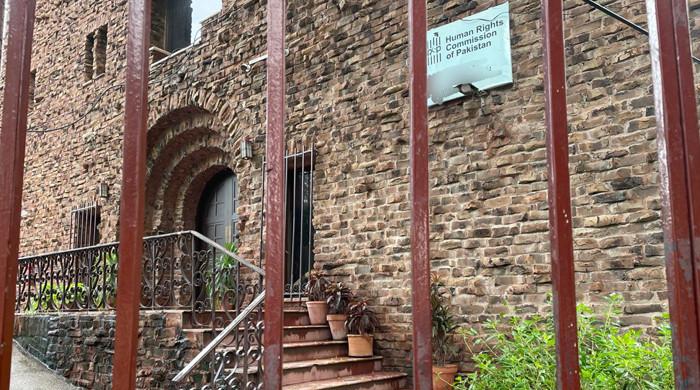HRCP Alleges Intensified Harassment and Obstruction of Operations
The Human Rights Commission of Pakistan (HRCP) issued an unprecedented statement on July 2, detailing a series of challenges it has faced.
The declaration cited that HRCP has encountered numerous arbitrary, unlawful, and unwarranted actions recently, hindering its capacity to fulfill its designated role.
The assertion outlined instances where individuals claiming affiliation with security organizations allegedly harassed and intimidated HRCP personnel.
The HRCP statement urged authorities to uphold fundamental rights of association, ensuring human rights advocates can function without fear of retribution.
Established in 1987, the HRCP was co-founded by the late lawyer and activist Asma Jahangir and IA Rehman, a journalist and human rights defender.
It stands as Pakistan’s leading rights organization, recognized nationally and internationally as an independent and credible voice for civil liberties.
Over the years, its reports and public advocacy have frequently faced criticism from politicians and state actors. In 2014, Imran Khan, then a prominent opposition figure, accused HRCP of supporting foreign agendas, an allegation that remained unsubstantiated.
However, HRCP members claim that the escalation of pressures over the past two and a half years has surpassed anything experienced in its extensive history.
According to Harris Khalique, the organization’s secretary general, the pressure is unlike anything experienced before.
Since late 2023, HRCP has been subjected to persistent interference. The organization’s Lahore headquarters faced sealing, electricity meter removal, bank account freezes, and the detention of its chairperson. Furthermore, planned events in various cities were blocked, and staff received threatening calls cautioning against discussions on sensitive topics.
Initially, HRCP chose to keep these challenges private. However, the situation deteriorated, prompting the release of the July 2 statement.
Khalique explained that they realized that if they continued to absorb the pressure, it would only intensify.
The crackdown on HRCP intensified following an October 2023 consultation in Islamabad, where HRCP implored the government to reverse its decision to expel Afghan refugees. The declaration emphasized that such actions would disproportionately affect vulnerable Afghan refugees and asylum seekers, including women, children, the elderly, persons with disabilities, and Afghans at risk due to their professions.
The reaction was immediate. Individuals claiming to represent security agencies, along with others identifying as officials from the interior ministry, visited HRCP’s office.
Khalique mentioned that they were asked to provide a recording of their event and a list of attendees, a request that was denied.
This year, HRCP planned consultations on local communities’ right to natural resources in Gilgit Baltistan and a roundtable in Islamabad on the human rights situation in Khyber Pakhtunkhwa and Balochistan.
Neither event materialized. In both Gilgit and Islamabad, the hotels hosting the events requested a no-objection certificate (NOC) from the local administration.
According to Farah Zia, HRCP’s director, this request for an NOC to hold a consultation was unprecedented in their 38-year history. Eventually, HRCP was compelled to hold a smaller session at its Gilgit office, with government representatives present.
Additional actions also appear designed to disrupt HRCP’s operations. On November 5, 2024, the Lahore Development Authority sealed HRCP’s office, alleging unauthorized commercial activity in a residential zone. Reopening the premises required hours of effort and numerous phone calls.
Subsequently, the Lahore Electricity Supply Company disconnected the group’s electricity meter and imposed a fine. Additionally, a private bank froze HRCP’s accounts, reportedly acting on instructions from the State Bank of Pakistan.
However, in April, the State Bank submitted a written response to the Lahore High Court, denying issuing any such directive.
The most severe incident occurred in July 2024 when Asad Iqbal Butt, HRCP’s chairperson, was taken from his Karachi residence and detained by police for four hours.
He faced questioning about his work in Balochistan and alleged connections to the Baloch Yekjehti Committee (BYC), a women-led rights group in the province.
Butt, 78, reported being shown photos of his children. He stated that they indicated they knew where his son worked and could ensure he would not find employment elsewhere. His release occurred only after lawyers and activists gathered outside the station, and media began reporting on his arrest.
Harris Khalique believes the state has established boundaries around specific issues, including enforced disappearances, the deportation of Afghan refugees, and legislative actions concerning land and minerals in the provinces.
Enforced disappearances in Balochistan, remains a particularly sensitive subject.
Khalique emphasized that they are the sole organization still documenting these cases nationwide.
According to the government’s Commission of Inquiry on Enforced Disappearances, at least 10,565 individuals have disappeared in the country since the Commission’s inception in 2011, up until May. Activists suggest the numbers are considerably higher.
In its 2024 annual report, HRCP urged the state to eradicate the heinous practice of enforced disappearances, recognizing it as a crime against humanity under international law.
Despite the ongoing campaign, the HRCP affirms its commitment to continue its work. Farah Zia stated that the space for dissent and free speech is constantly diminishing, but they must persevere regardless.
In March, Pakistan’s army chief advocated for stronger governance and the transformation of the country into a hard state.
Butt observed that the state appears to be progressing towards this goal of a hard state, aiming to suppress alternative narratives.
The federal minister for law and justice and human rights, Azam Nazeer Tarar, and Punjab’s information minister, Azma Bokhari, did not provide comments despite repeated requests.



Comments (0)
No comments yet. Be the first to comment!
Leave a Comment